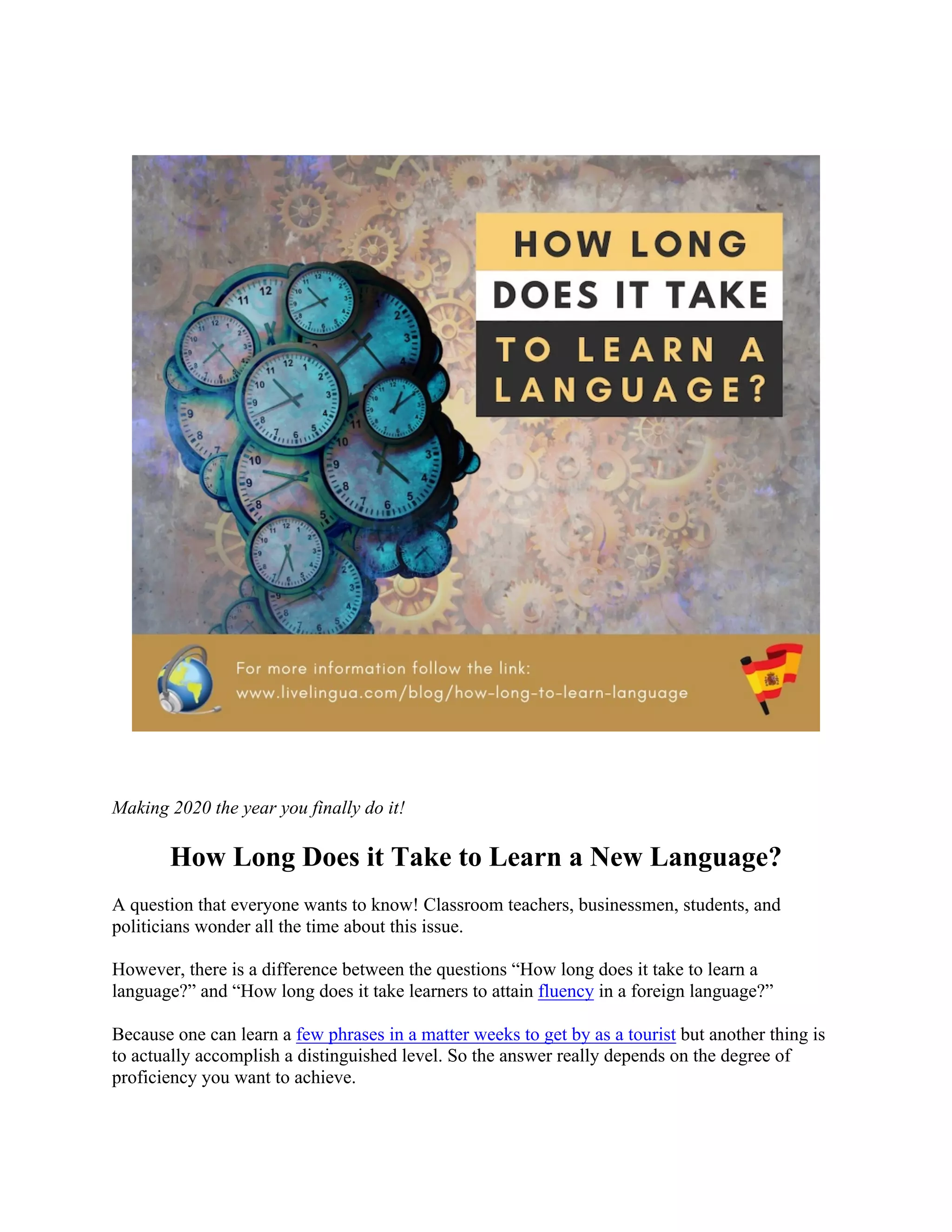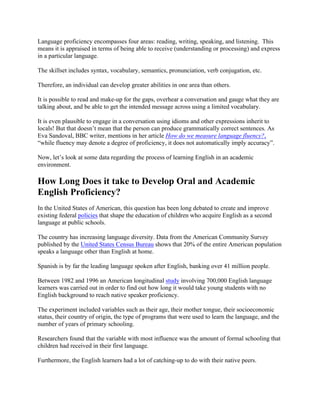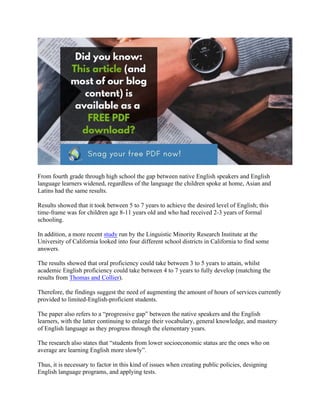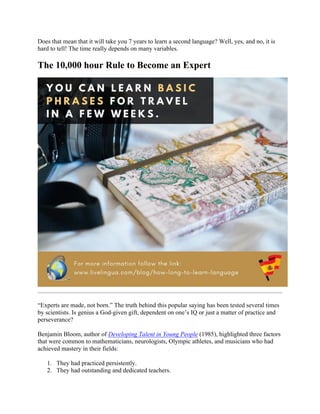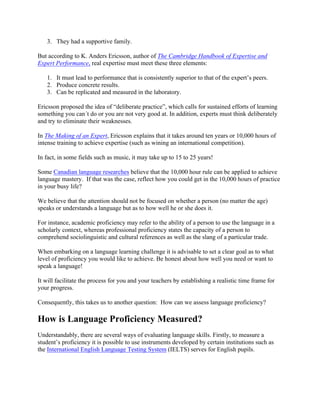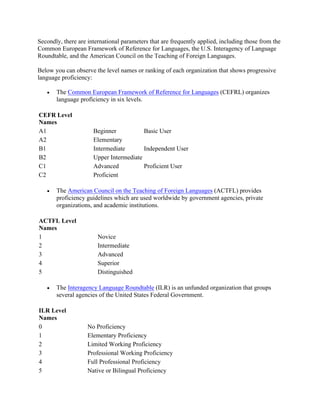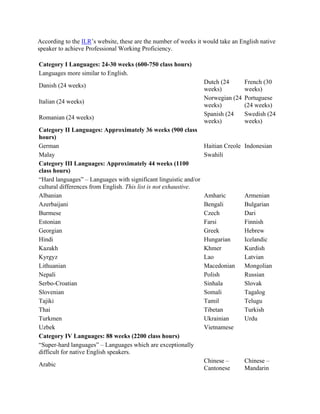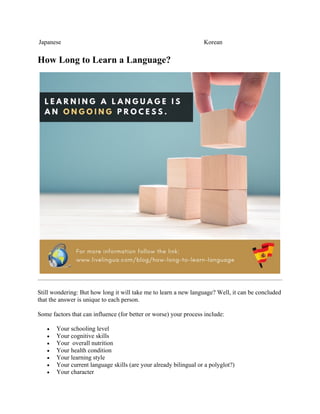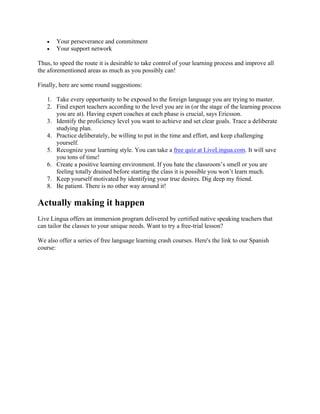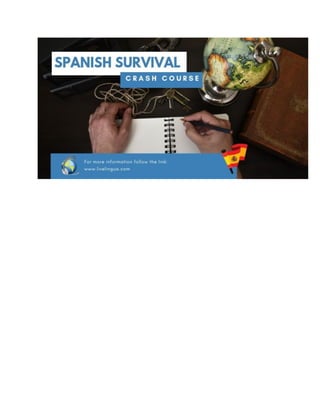The document explores the time it takes to learn a new language, highlighting the difference between basic communication and achieving fluency. It provides data indicating that developing proficiency in English can take between 5 to 7 years for children, influenced by factors such as formal schooling and socioeconomic status. Additionally, it discusses the importance of deliberate practice and setting specific goals to guide language learning effectively.
